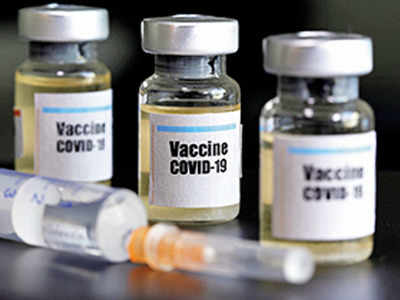Every day, more worldwide colleges and universities declare that students need the COVID-19 vaccine before returning to campus in the fall. Here admissions are now open for fall classes at most Chicago schools. Being university professors, we are worried about teaching safe and sound in Hyde Park, Lincoln Park, Rogers Park, and Evanston. That’s why despite wearing masks and keeping distances, the University of Illinois needs the COVID-19 vaccine for all students, workers, and teaching staff.
The epidemic is heading in the wrong direction. It will affect the youth between the ages of 18-29 years, and it is mostly the age of college and graduate students. Though this group will not die from COVID-19, they may face lifelong disability due to damage to the heart, lungs, and brain. The spread on the Chicago campus showed that supporter compliance and a broad code of conduct are not the only solutions.
On the other hand, some universities have decided to encourage students to be vaccinated instead of vaccinating Covid 19. Students at Dickinson State University who give complete vaccination proof will be exempt from the current campus-wide mask order. Although the transmission threat is quite low, it is not difficult to develop such a policy, particularly with students from various physical locations at large universities.
However, Cornell and Notre Dame, among other universities, will provide students COVID-19 vaccinations to come back to campus following fall. It is a long-standing higher education process to secure the campus and close groups from infectious disease threats. These more than extra shots will top the list of pre-requisite vaccinations, such as measles, epidemic parotitis, epidemic roseola, typhoid fever, whooping cough, and meningitis. All of them are highly infectious and highly curable. These diseases are contagious in communal surroundings like dormitories, dining halls, and team locker rooms, showing college life.
The infection, hospitalization, and mortality rates will decrease dramatically when 70-85% of people will be vaccinated against the COVID epidemic. The vaccine will not just secure an individual but also others with whom he interacts. That’s why the professor is anxious to vaccinate the students because they are in the environment where students play, live, and work.
However, this will not be easy to implement a command in a surrounding where mistrust in the environment is growing, a condition that has deteriorated over the use of the Johnson & Johnson Covid 19 vaccine. But doing the necessary work of protection is the right thing to impose. Dr. Eric Fiegel Ding, a health specialist at the Federation of American Scientists in Washington, D.C., is a strong defender of the need for polio vaccinations in colleges and universities.
According to a recent survey by the Kaiser Family Foundation;
“37% of people are reluctant to be vaccinated against polio.”
We understand the opposition. It is the violation of a person’s sovereign right to control his own body for required vaccinations. But it’s not just your own body that is at risk – it is also a threat for other people. Since 1905, the U.S. Supreme Court has governed that state managements have the power to vaccinate. In other words, one’s freedom ends where one’s actions harm others. My freedom cannot stop your freedom. As biologists, we know that no “right” is independent. Each right is related to the relevant duty.
On most campuses, the systems to track vaccine observation, protecting the confidentiality of this medical information, and handling medical and religious immunity applications are already in place. There are even ways to protect students who have health concerns who do not need to be vaccinated, like testing twice a week, wearing a mask, and having regular physical distance.
Vaccines are coming soon to all districts. President Joe Biden has promised to provide the vaccine to anyone who wants it. The Food and Drug Administration has considered changes from emergency approval to formal for some vaccines.
Here as teachers, we can’t wait to see our students again. After more than a year of distance learning, we would love to open our classrooms and walk into the lecture hall. But to welcome our students, workmates, and staff back to our campus, we will need to introduce new instructions regarding COVID-19 vaccination. The need for polio vaccination will also be safe on the outskirts of Chicago, where our students live, shop and work.
Now is the time to structure plans. Within a few weeks, the summer break will set students to leave. We should try to make sure they come back safe and sound.
Conclusion
The Covid-19 vaccination will make the college campus secure. It will also lessen the risk of on-campus transmission when college students come back to campus this fall. Any interference we can propose would help reach the herd exemption, as we are likely to have a fourth increase due to the rapid spread of the disease.

